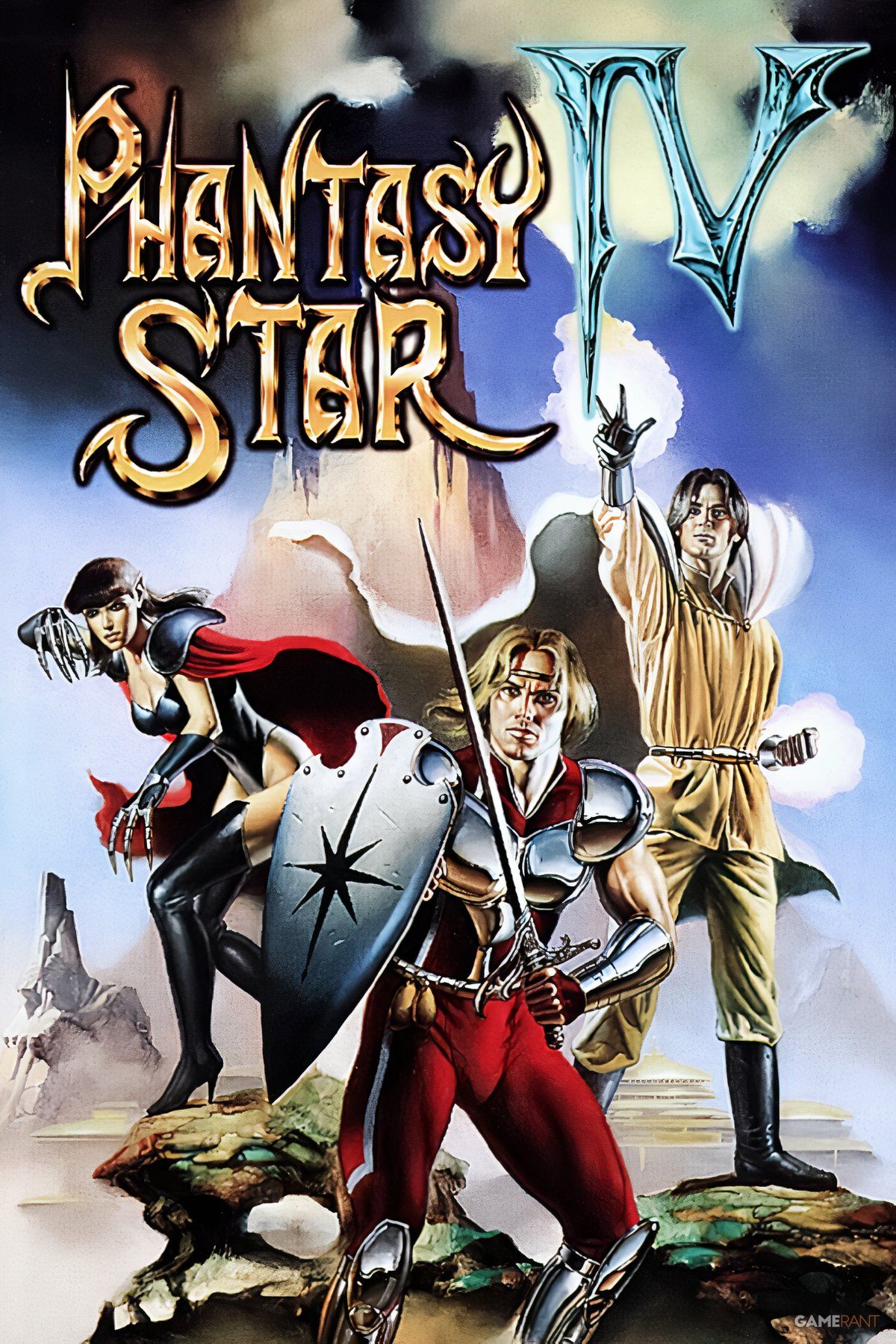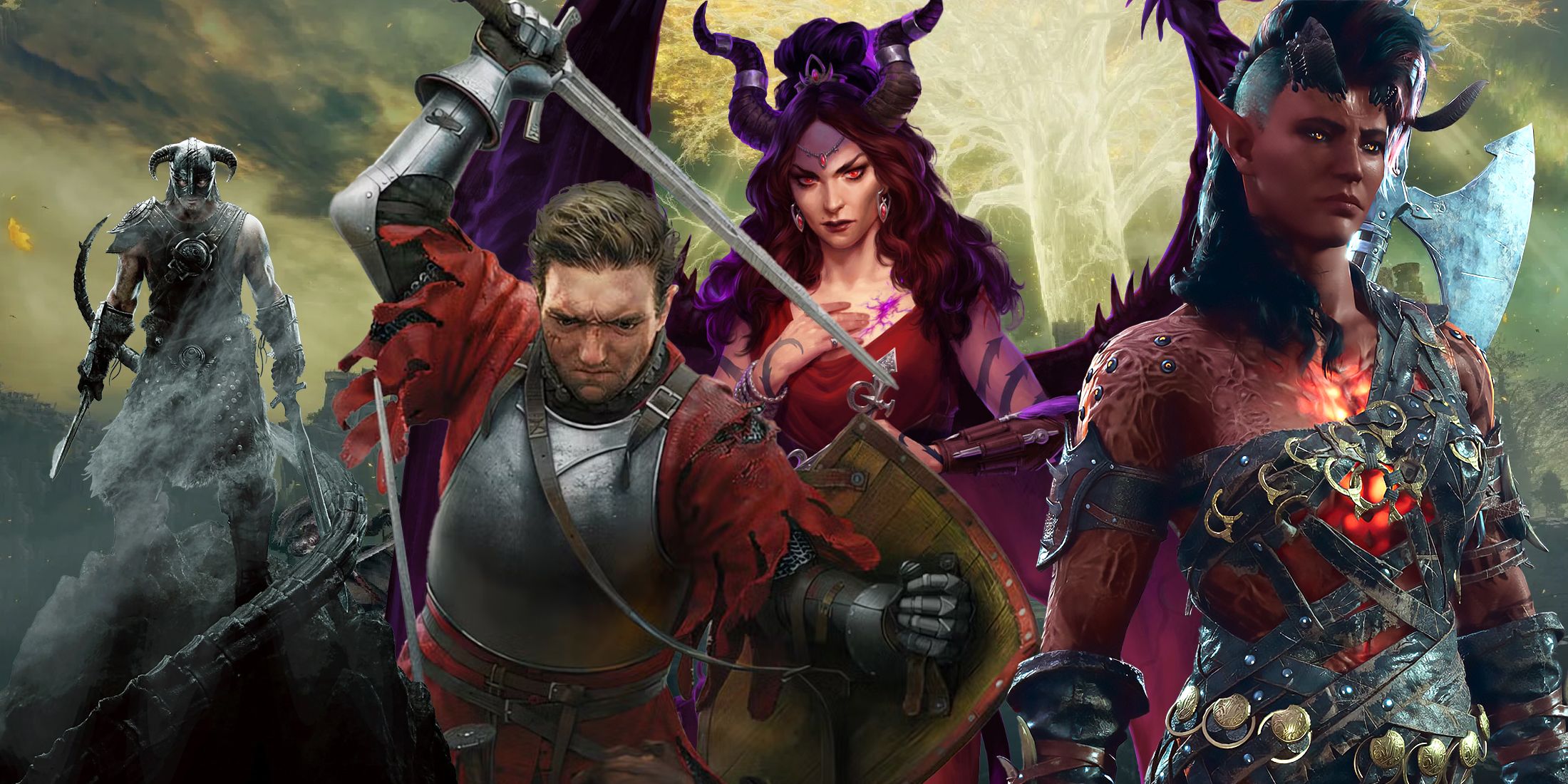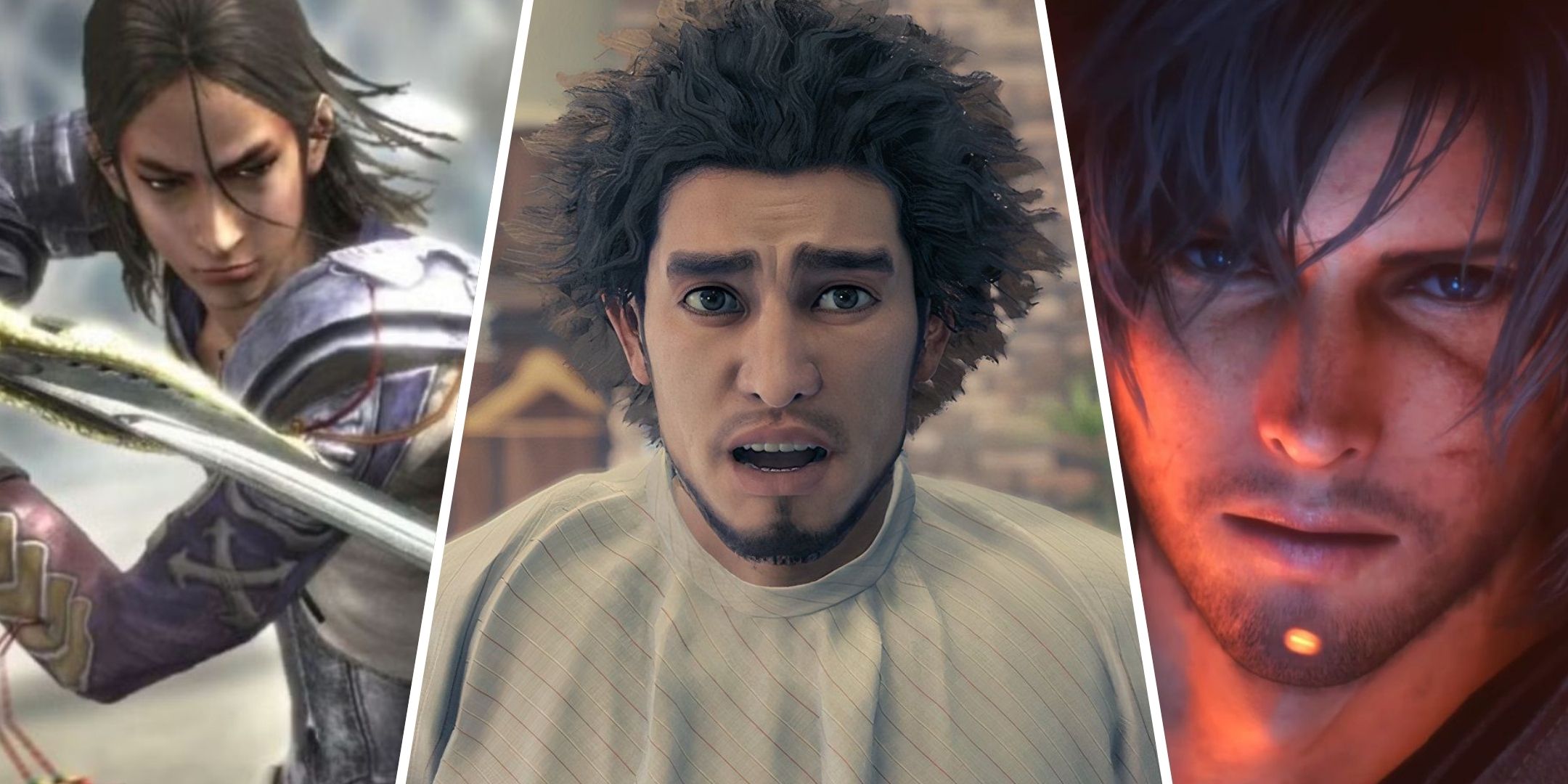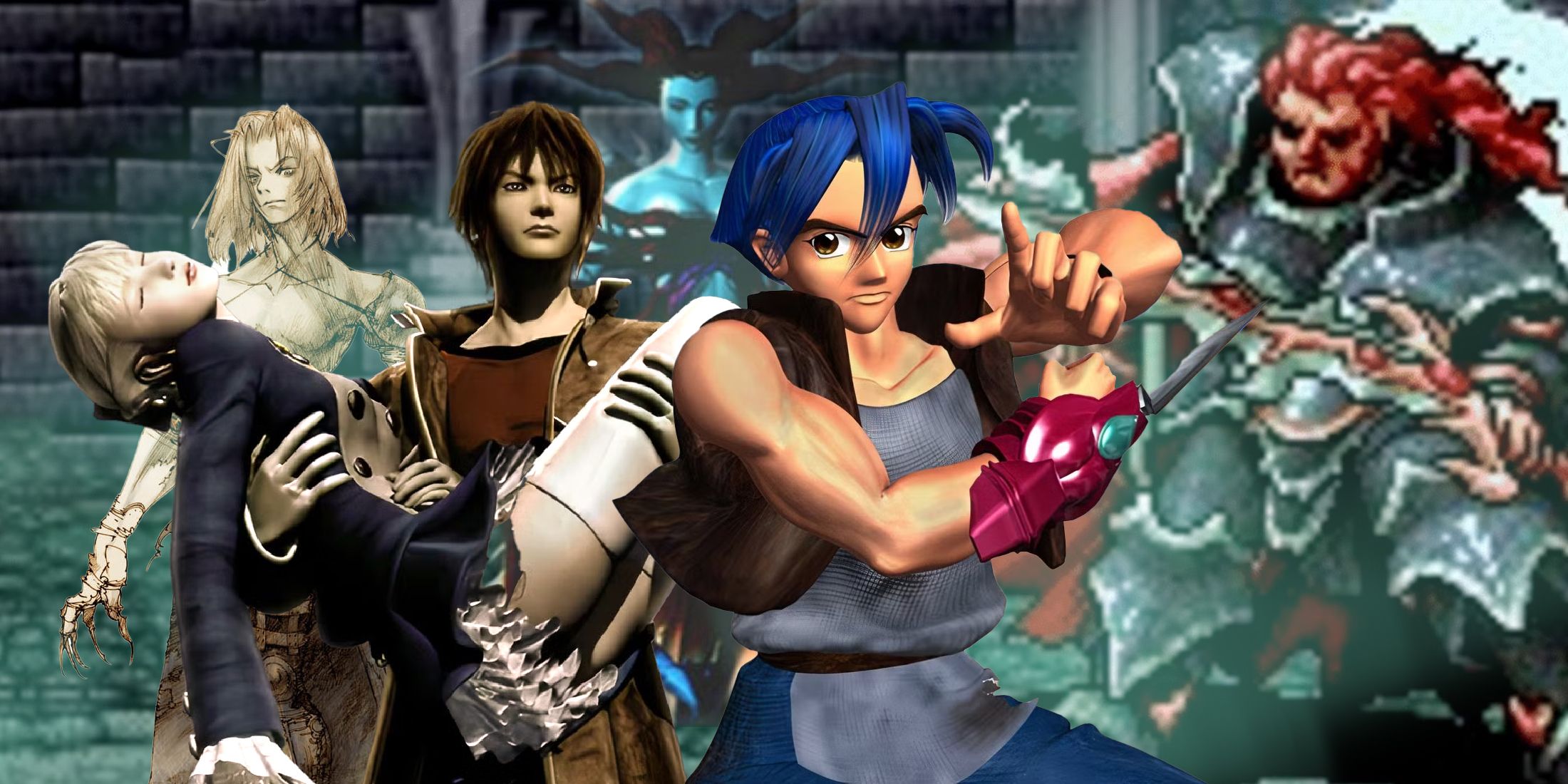Summary
- Sci-Fi JRPGs offer unique narratives exploring themes like identity and politics.
- Games like Infinite Space, Parasite Eve, and Xenosaga feature deep and engaging stories.
- These JRPGs mix Science Fiction with fantasy elements, delivering memorable experiences.
JRPGs are a broad genre when it comes to setting, and while many games lean toward medieval fantasy, others prefer to dive into different scenarios, especially narratives about distant futures, advanced technologies, and themes that explore various unique concepts. Often, the story stands out as a highlight in these games, delivering players an ambitious adventure with well-developed worlds that create some of the unique experiences in the genre.
Related
10 Best JRPGs That Master the Balance Between Combat and Story
Discover JRPGs that merge dynamic battles with captivating plots, delivering the best of both worlds in every adventure.
So, the Sci-Fi JRPGs with the best stories are those that deliver a unique way of blending the sense of escape of exploring unknown settings with a close look at human issues. By balancing these elements with strong storytelling, these games allow players to experience not only fascinating environments but also a memorable plot about identity, ethics, and other themes.
10
Infinite Space
A Space Odyssey That Explores Ambition And Political Intrigue
- Developers: Nude Maker, PlatinumGames
- Platform: Nintendo DS
- Release: June 11th, 2009
Although relatively unknown, Infinite Space is one of the strongest examples of how JRPGs build deep narratives on handheld platforms, shaping a space journey filled with politics, mystery, and ambition. The story follows Yuri, whose gradual growth from idealistic youth to seasoned military leader unfolds clearly as he crosses vast territories and meets many characters with their own distinct motives.
The plot relies on an complex web of political intrigue and a constant search for answers about ancient civilizations whose technology deeply affects the setting and drives the game’s universe. Infinite Space uses these threads to create an intense, emotional, full of unexpected twists, carefully paced revelations, and strongly defined personalities that engage through genuine interactions with Yuri.
9
Star Ocean: The Second Story R
Characters Are What Make This Story So Strong
Star Ocean: The Second Story R delivers one of the genre’s standout narratives, mixing medieval fantasy with classic Science Fiction elements, especially in the contrasts between advanced civilizations and more primitive societies. The plot centers on Claude and Rena, and, although often called cliché, it shines through authentic, engaging interactions between main and secondary characters, deepened through the “Private Actions” system.
These optional scenes form the narrative’s true strength, giving players detailed and often humorous or moving insights into character motivations and hidden fears. The ability to follow different narrative perspectives adds extra layers to the main plot, encouraging replay under new viewpoints and inviting deeper exploration of the interpersonal bonds and subtle conflicts that sustain the storyline throughout each chapter.
8
Parasite Eve
Game Narrative Focuses On Biological Horror
While Science Fiction narratives in JRPGs usually feature futuristic settings, some games break convention, and Parasite Eve stands as a true classic of the genre. The story unfolds in late-1990s New York City, mixing biological horror with a dense, uneasy atmosphere across the city’s iconic streets and examining humanity’s weakeness when confronted with mysterious evolutionary threats arising from within its own cells.
Through this setting and tone, Parasite Eve delivers one of the medium’s most powerful stories, based on believable science that lends each event unsettling credibility and heightens tension. Beyond the well-crafted plot, the game’s greatest strength lies in its protagonist, because watching Aya’s steady growth, personal stakes, and strength during the crisis becomes one of the title’s most compelling aspects for players.
7
Front Mission 3
JRPG Stands As One Of The Series’ Narrative High Points
The Front Mission series has always plunged into familiar Science Fiction themes, treating its plots with seriousness, avoiding the glorification of war, and focusing on political realism and the consequences of conflict. These qualities reaches its peak in Front Mission 3, which presents a complex global setting and stands as one of the franchise’s most carefully built settings for players to examine and question.
Players can follow the narrative from two different protagonists, with each route revealing fresh information and critical context for the escalating events in Front Mission 3. The game also excels in extra content; browsing the numerous in-game internet sites uncovers deep lore, detailed reports, and hidden dossiers that enrich the title’s meticulous sci-fi worldbuilding and generously reward patient, attentive exploration over many hours.
6
Phantasy Star 4: The End of the Millennium
Franchise Was A Pioneer Within Science Fiction

Phantasy Star IV: The End of the Millennium
- Released
-
December 17, 1993
Even though the franchise did not receive the recognition it deserved at launch, Phantasy Star 4 features one of the best narratives ever developed for a JRPG, even considering the limitations of its era. The story starts dynamically and rarely loses momentum, constantly providing new information and expanding its content, developing both main and supporting characters throughout the game.
6:09

Related
10 Best RPGs With 100+ Hours of Content, Ranked
From epic JRPGs to open-world masterpieces, these RPGs offer over 100 hours of quests, choices, and worlds you won’t want to leave.
Although at times the game leans more toward sci-fantasy than pure Science Fiction, Phantasy Star 4 still delivers weighty themes, especially for the period in which it was released. This allows the JRPG’s narrative to progress satisfyingly despite some constraints, delivering memorable moments and securing the game’s place as one of the genre’s most important titles.
5
Chrono Trigger
One Of The Most Creative Sci-Fi JRPGs Of All Time
Chrono Trigger is often cited as a benchmark for the creative use of Sci-Fi in JRPGs, employing time travel not just as a backdrop but as a central mechanic tightly woven into the storyline to keep every decision meaningful. The plot features multiple timelines and divergences shaped by player choices, establishing a dynamic system where the visible consequences of actions enrich the overall narrative experience.
Moreover, the character development, with each hero drawn from a different era, is handled masterfully, their personal stories linked to the main plot through universal themes such as friendship, fate, and sacrifice. This narrative structure, which deftly mixes emotional depth and complex ideas with clear, engaging execution, secures Chrono Trigger a lasting place of distinction within the genre among fans worldwide.
4
Final Fantasy 7
Game Holds One Of The Best Narratives In The Final Fantasy Series
One hallmark of Final Fantasy is how each entry explores new themes, and many of these games weave in Science Fiction ideas alongside fantasy traditions to keep the series fresh. Among them, Final Fantasy 7, both the 1997 original and the modern remake, presents one of the genre’s strongest narratives, tackling environmental collapse, corporate control, and clear class gap through a long, layered plot told in careful detail.
The opening chapter, set inside Midgar, one of gaming’s most memorable cityscapes, instantly shows players every theme the story will develop during Cloud’s journey, from ruthless energy extraction to grassroots resistance. In addition, the game tightly weaves the hero’s personal, introspective arc with a coming global disaster, keeping the stakes clear, relatable, and emotionally resonant from the quiet alleys of the slums to the very edge of the planet.
3
Xenosaga Trilogy
JRPG Presented A Complex And Ambitious Setting
Tetsuya Takahashi, who also conceived and developed Xenogears, stands as one of the leading figures behind Science Fiction storytelling in JRPGs, and his vision reaches new heights throughout the Xenosaga trilogy. Across those three games, he crafts a carefully built universe and a plot that asks players to ponder philosophy, theology, and humanity’s future through an ensemble of vivid characters whose intersecting fates drive every major event.
Even more cinematic than Xenogears, Xenosaga features lengthy cut-scenes and layered dialogue that were uncommon for the genre when the first episode launched on PlayStation 2. Together, these elements allow the trilogy to present one of gaming’s finest science-fiction narratives, thanks to the way it explores lofty themes without losing sight of the intimate fears and hopes that ground every philosophical question in human terms.
2
NieR: Automata
It Tells Its Story In A Unique Way
While the gameplay of NieR: Automata ranks among the most enjoyable parts of the experience, the narrative of this JRPG also stands as one of the best produced within the Sci-Fi genre. Told in a non-traditional format, the story requires players to finish the campaign multiple times to unlock new endings and gain fresh perspectives on the events unfolding around them.

Related
8 Best JRPGs Without An Anime Aesthetic, Ranked
These JRPGs drop anime visuals to deliver worlds inspired by Western fantasy, modern realism, and cinematic tone.
The game uses that structure to show how truth can be complex, presenting the tale from different angles and, with each new route, revealing extra layers of world-building that probe themes of existentialism and the meaning of humanity. Its setting, ruled by sentient androids and machines that mimic human behavior, reinforces every idea under discussion and turns the journey into an even more compelling experience.
1
Xenogears
JRPG Is A Science-Fiction Masterpiece, Yet Overly Ambitious
A true classic of the genre, Xenogears is often cited as one of the finest Science Fiction JRPGs ever made, delivering its core themes through a deep narrative even amid the sharp tonal shift that defines the second act. Despite that change, the story dives into politics and religion without hesitation, confronting weighty subjects with an unflinching focus that rewards attentive players.
Beyond its storyline, Xenogears offers many features that solidify its status as top-tier Sci-Fi, including the giant mechs, called Gears, whose importance extends far beyond combat to touch nearly every topic the narrative explores. Even with its considerable complexity, the title represents only a fraction of the broader universe created for the project, hinting at a much larger mythos that still intrigues fans today.

More
10 Best Discontinued JRPG Series That Deserve A Comeback, Ranked
These classic JRPG series had strong stories, gameplay, and worlds that would shine with modern remakes or sequels.




![Definitive Verse Piece Accessories Guide and Tier List [Vergil Rerun] – How to Get Each Accessory Definitive Verse Piece Accessories Guide and Tier List [Vergil Rerun] – How to Get Each Accessory](https://i1.wp.com/www.destructoid.com/wp-content/uploads/2025/02/verse-piece-accessories-guide.webp?w=360&resize=360,270&ssl=1)



